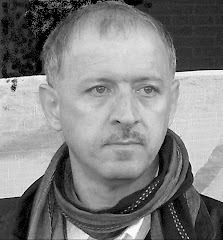[COLONIAL ECOLOGY: the following has been published in Haaretz, Today (January 2, 2008). Again, the Israeli internal 'civic' debate regarding urban planning on its face is a colonial act in its essence. for the Israeli environmental debate the problem is between the roebuck animal and the future settlers of Ma'alot city in Galilee (where all Maalot lands are palestinian confiscated lands), but not the fact that the lands mentioned are Suhmata demolished village lands. These are Suhmata refugees and internally displaced private and collective lands and properties. colonial state and society are taking a ride on roebuck in order to achieve historical crime laundry... Ameer Makhoul]
w w w . h a a r e t z . c o m
Last update - 02:49 02/01/2008
Senior ecologist slams planned new Ma'alot neighborhood
The construction of a new neighborhood east of Ma'alot will deal a mortal blow to the area's ecology, according to Talia Oron, chief ecologist for the Galilee Region at the Israel Nature and National Parks Protection Authority. The Ma'alot municipality wants to construct a new neighborhood on Tzuriel Hill, which is separated from the main town by the Peki'in River. To connect the two areas, a bridge would be built over the river - but both ends of the bridge would be in nature reserves. The plan was approved this week by the Northern District Planning and Building Committee. Eli Amitai, director of the INNPPA, termed the committee's decision "regrettable and worrying. This is a unique area that links two of our country's biggest and most important nature reserves. It's no accident that this area was chosen to implement a plan to restore the roebuck, since it enables wildlife to move through two large ranges that include rivers and vegetation that sustain them. "It's easy to talk about the roebuck and say that human needs take precedence over their needs, but you must remember that many wild animals in addition to the roebuck would be endangered by this drastic fragmentation of their home." According to Oron, the area in question is "the bottleneck of the green ecological corridor between the Western Galilee and the Mount Meron reserve. Such a corridor needs to be both broad and open. All planners worldwide have understood that fragmentation is one of the most serious problems in nature, and that open space is critical." Oron pointed out that the planned houses are not the only problem: There will also be roads to serve the new neighborhood, taking up yet more space, and "wildlife will stay hundreds of meters away because of the effect of light, noise, filth, cats, dogs and other things." The INNPPA has proposed alternative sites for the new neighborhood, on areas that are slated for development under the city's master plan. "Building there would cause much less damage to nature and would provide an estimated 3,500 housing units, which would suffice through 2025," said one official. "By comparison, the development on Tzuriel Hill would enable construction of only 2,250 housing units." Amitai added that the Tzuriel plan "grossly violates the principle of sustainable development that was laid down in the national master plan [known as Tama 35]. Therefore, it ought to be canceled." "Ma'alot can't be an ordinary town," argued Oron. "The city's uniqueness lies in its closeness to nature - which it will lose" if the Tzuriel plan goes through. Noting that the nature reserves constitute a tourist attraction, she added: "The city benefits from nature, including economically."
http://www.haaretz.com/hasen/spages/940724.html
Tuesday, January 1, 2008
Subscribe to:
Post Comments (Atom)


No comments:
Post a Comment